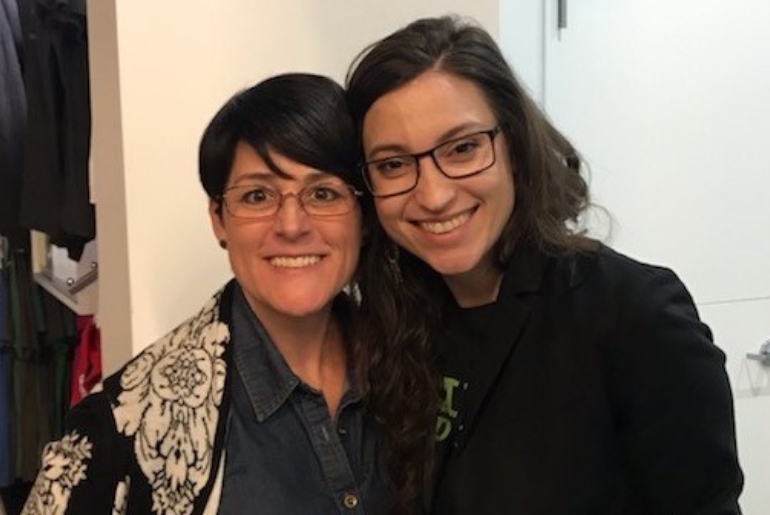If you attended my session Planning for the Largest Owner Loan Capital Campaign EVER co-lead by Jessica Stratton at the Up & Coming Conference then you know we collected some questions that we didn’t get a chance to answer during the session. We’ll address some of those questions here.
- How do you come up with the funding to begin the capital campaign?
- Great question! Typically, a co-op will draft a budget that is approved by the Board of Directors and is funded from cash on hand or from loans made out of escrow (this can be complicated, so if you want to learn more about this, please reach out). In short, owner equity typically gets utilized to fund the expenses of a capital campaign.
- How can the pitch deck be applied to a capital campaign?
- Great question. There are LOTS of ways you can use a pitch deck in your campaign. First of all, it can be an exceptional asset during the quiet phase of your campaign as you are meeting one on one with potential contributors. Having a curated series of slides directed at an individual will increase the likelihood that you’ll connect the individual to the co-op and make a compelling case for contributing. Another way pitch decks can be utilized is to train your campaign team. In addition, if you’re hosting small gatherings of owners to discuss the campaign, a pitch deck will be helpful as you design your presentation.
- How do you finance staff before the store opens?
- The expense of staff before the store opens often is a drain on owner equity (shares), but there are creative ways to offset those costs like applying for grants, utilizing expertise available through local universities (interns) or partnering with a complementary organization.
- Do you meet resistance from other co-ops?
- Typically other co-ops are a form of support and encouragement. Principle 6 – Co-ops Helping Co-ops guides us as cooperators to be helpful and provide assistance to other co-ops whenever we can.
- What if we aren’t a 501(c)3?
- No worries. If you aren’t a 501(c)3 and want to take donations with a tax deduction option, seek to partner with a community organization or another 501(c)3 in your community to take donations on your behalf. You can find more information about examples and resources, including the Cooperative Development Services Fund here.
- What were your legal documents?
- There are typically a few legal documents necessary for a capital campaign and will vary depending on the structure of your campaign but can include :
- An Offering Memo or Disclosure Statement
- A Subscription Agreement -Loans
- A Promissory Note -Loans
- A Subscription Agreement -Preferred Shares (please send me a note to request an example)
- There are typically a few legal documents necessary for a capital campaign and will vary depending on the structure of your campaign but can include :
- How many staff should you have? What positions? Full-time or part-time?
- This is a co-op by co-op decision based on lots of contributing factors. In short, it’s important that at least one individual within the co-op has been assigned responsibility for the campaign. Initially, that will likely be a part time assignment (approximately 20 hours a week) but as you near the campaign it’s likely that the individual leading your campaign will be working 40 hours+ per week.
- Can you exchange owner shares for pro-bono work (printing, design, etc.)?
- That is a co-op by co-op decision typically made by the board of directors. You should consider consistency, transparency and policy when making this kind of decision. It’s important that all co-op members are treated equally and that any policy is applied equitably.
- What’s the best way to message about the Capital Campaign from the beginning? Do you have specific examples?
- It’s important (I argue imperative!) that you’re talking about how you’ll fund your store from the very earliest stages of development. An easy way to do that is to the talk about the Cooperative Principles, especially the Principle of Economic Participation. Another easy way to talk about capital campaigns from early on is to share examples of other co-ops who are raising money successfully. I challenge you to include messaging about capital campaigns in every email newsletter you send out, weekly in social media (leading up to the campaign) and at every co-op gathering.
- Sample Facebook Post: Co-ops operate under 7 guiding principles, one of our favorites is the Principle of Economic Participation. As a co-op owner you can participate in this principle by buying shares (if you haven’t done so already, what are you waiting for?), shopping at the store once it’s open and participating in our capital campaign to raise the funds needed to open our store. Watch our email newsletter for more info on our capital campaign.
- Sample Newsletter Article: Capitalizing the Co-op. There are 3 primary ways owners can help capitalize (i.e. provide funding to) their co-op:
- Become an owner by buying shares (or extra shares!): this helps provide funds needed to cover the expenses of planning and running the co-op. (link to your online ownership application)
- Make an additional commitment by way of our capital campaign: In order to raise the significant amounts of capital needed to secure a location, build-out the space to fit the needs of a grocery store, stock the shelves and hire staff; a capital campaign is a necessary component to the overall financing. You’ll learn more about the campaign in the coming weeks and months!
- Shop at the co-op once it opens: This contributes to the co-op’s profitability, with a portion of the profits being retained as capital, and reinvested in the cooperative business.
- Contact me for even more potential content you can share or to discuss these questions and answers in more detail.
- It’s important (I argue imperative!) that you’re talking about how you’ll fund your store from the very earliest stages of development. An easy way to do that is to the talk about the Cooperative Principles, especially the Principle of Economic Participation. Another easy way to talk about capital campaigns from early on is to share examples of other co-ops who are raising money successfully. I challenge you to include messaging about capital campaigns in every email newsletter you send out, weekly in social media (leading up to the campaign) and at every co-op gathering.






